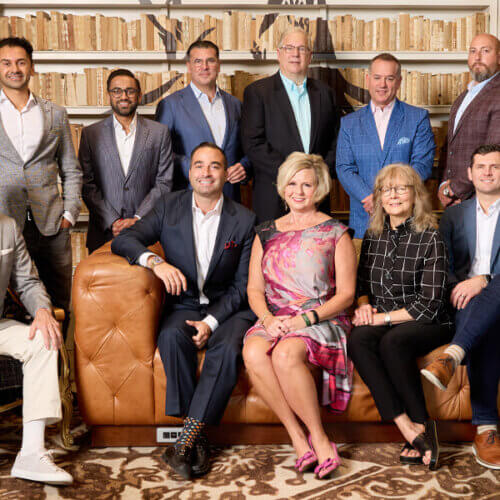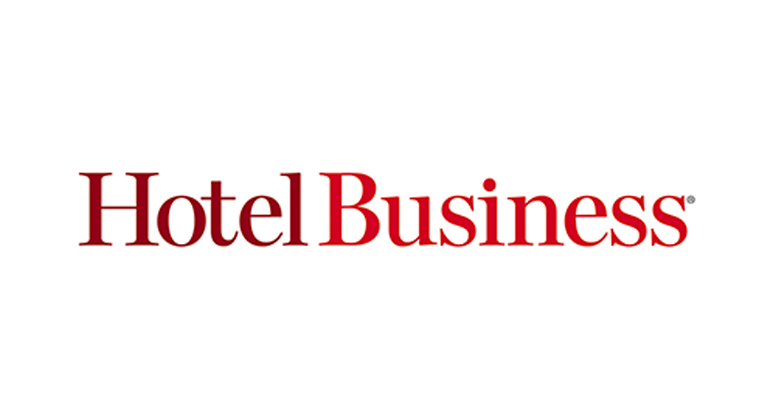HB Roundtable: Investments to improve your bottom line

There are several areas hoteliers can focus on to impact their bottom lines, from property improvement plans (PIPs) and technology to implementing sustainable practices and lowering energy costs.
Hotel Business recently held an executive roundtable, hosted and sponsored by Mitsubishi Electric, where industry leaders discussed best practices to achieve healthy hotel finances.
Moderated by Christina Trauthwein, VP, content & partnerships, Hotel Business, the panel included Ryan Alpert, VP, sales. commercial strategy, GF Hotels & Resorts; Ben Campbell, CEO, Hospitality America; Ben Haller, SVP, operations, Concord Hospitality; Justin Jabara, president, Meyer Jabara Hotels; George Jordan, president, Oxford Hotels & Resorts; Jagdish Patel, VP, shared services, NewcrestImage; Ravi Patel, president, Hawkeye Hotels; Barbara Purvis, president, Essex Hotel Management; Brian Quinn, chief development officer, Sonesta International Hotels Corporation; Kerry Ranson, partner/president of operations, Raines; and Tom Varga, senior manager, business development, Mitsubishi Electric.
“You have to spend money to make money.” This saying rings true for the hotel industry, where smart investments will impact the bottom line in the future. The panelists were asked about the areas where their companies plan to invest in the next three to five years.
While some would expect the responses would be about hotel infrastructure (whether front- or back-of-house), on-property improvements or technology, Jordan took a different approach.
“We’re all about investing in our people more so than ever before because most people don’t want to do the hands-and-feet job,” said the Oxford president. “They want to work from home on the computer, and our business requires face-to-face, 24/7, 365 days a year. Our corporate mission for 2023 and 2024 has been what we call RTR—recruit, train and retain—and none of those three can stand alone.”
Ravi Patel noted that Hawkeye Hotels is focused more on retaining its current employees, adding, “How do we shift from the associate mindset to the stakeholder mindset for everyone on-property? We’re spending a lot more on the incentives piece, and we’re giving bonuses on many different things. If they’re making $18 an hour, and we can jump that up to $23, that’s a big deal to them, and it’s a win-win for both them and the company.”
But keeping employees content is not just about what goes in their wallets, according to Jagdish Patel.
“One of the keys to employee retention is the company culture, and it has to be done from the top down,” he said. “Your core values and principles have to be lived and breathed by your C-suite executives all the way down to your front desk. Otherwise, the team members don’t believe it.”
Quinn pointed out that before you can retain employees, you have to bring them into the fold. One way to do that is to tell the story of how hospitality can be a rewarding career.
“We have to tell them that people can start out as a desk clerk and end up as the CEO,” he said. “We’ve gotten away from telling that story, and we have to go back to it every once in a while.”
Alpert said it’s not just about your employees, but “the people outside of your four walls—partners that you can get along with; that can understand your margin and your end goal; and are not just trying to sell you an application or product.”
Switching gears, Campbell believes hotel companies should focus on their investment in technology and how to utilize the data that is pushed out by the various platforms they purchase.
“In the next three to five years, we’ll all have a huge tech stack, but how will you be using the data that you’re getting?” he asked. “We have seven different platforms that our GMs have to go into, but how are we utilizing that data efficiently? We’re going through a process right now where we’re pulling in all that data to try to control it ourselves and not outsource that to someone else.”
For Raines, Ranson noted, it’s about investing in the property itself.
“We have the capability of investing back into the assets to reposition them with a PIP,” he said. “It’s astounding to see the return that we’re getting in markets where we did it to just to retain our position. We’re actually seeing 12% increases in revenue components on what we’re getting back, and we’re picking up about three points in RevPAR index. We’re trying to pinpoint the right assets and saying, ‘Do we re-PIP these assets early and sign up for potentially a longer license because there’s an opportunity there for us to get something back on the asset?’”
Hoteliers and their guests are focusing on sustainability more than ever before, and for the former, implementing eco-friendly practices and equipment can make an impact on the bottom line.
“We are very focused on how we decarbonize our assets,” noted Jabara. “If you look at the cost structure of hotels, and then look at the utility line, it’s just getting worse and worse and worse. It’s hard to take water out of a hotel, but the more we can decarbonize these assets, the better it is for the environment. So, there’s a big focus on heat pump technology and adding solar panels. Architect Bruce Becker, who built the Hotel Marcel in New Haven, has worked with us on kitchens that have no gas. That’s the future.”
Vargas noted that “Mitsubishi also recognizes where we’re headed and the electrification that’s occurring in large cities like Seattle and New York. We offer a heat-pump water heater. In fact, Bruce has one of the first ones in the Hotel Marcel.”
While on the subject of sustainability, Trauthwein asked the industry leaders if they have found that guests are becoming more aware of sustainability, energy efficiency and energy management.
Campbell has found that groups and meeting planners are asking about the carbon footprint of his hotels’ events and spaces because “they have to report that, or they’re trying to reduce their own carbon footprint.”
According to Purvis, “There has to be a narrative and explanation around sustainability. We’re seeing it with corporate planners, but we’re not seeing it with the individual as much. People can say they want it, but if there’s a cost associated, they’re not willing to pay for it.”
Hotels can cut costs by adding eco-friendly equipment and technology, but one way to add revenue is to enhance their food and beverage offerings.
“We’ve had some success with making our restaurants very friendly for people to come to town and use their laptops,” said Quinn. “There’s going to be the ice-water crowd, and you don’t earn any money off of that, but there’s going to be a cast of characters that are ordering the coffee and then end up ordering food when a restaurant opens. We’ve seen that in Portland, Seattle, San Francisco, Chicago and some other markets.”
Concord’s Haller said that the success of F&B varies from market to market, adding, “Some F&B outlets are doing very, very well, but you’re competing with so many others out there. Those that were first in the market are phasing out, and people are transitioning into new hot spots. They’re going to capture the business for the next 30-60-90 days, and then something new will open up and be that new hot spot.”
Look for more coverage in the November issue of Hotel Business.
The post HB Roundtable: Investments to improve your bottom line appeared first on hotelbusiness.com.


